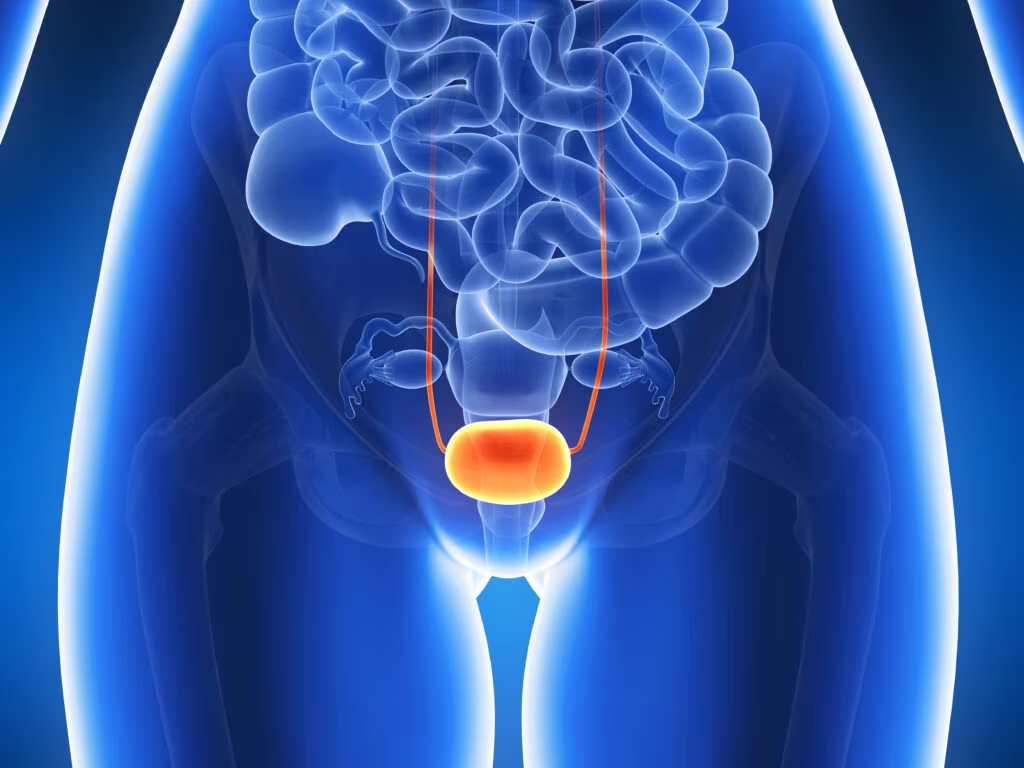Introduction
Introduction
Memory problems late in life are common and are often easy to recognize. Hypogonadism in older men is not as readily identified, but it is also frequently a part of aging. Androgens, such as testosterone, have important hormonal influences on the brain and may prevent and possibly treat cognitive loss, including age-associated memory loss, mild cognitive impairment (MCI), and perhaps even Alzheimer’s disease (AD).There is support from small, prospective clinical trials that suggest the role of testosterone in improving cognitive function in normal men as well as hypogonadal men with AD. This improvement in cognitive function is subtle and is often only measurable on specialized neuropsychological batteries such as those that measure the visual-spatial domain. Patients often report measurable memory improvement in both declarative and procedural domains after receiving testosterone replacement therapy.The rise of gonadotropins, follicle-stimulating hormones (FSHs), and luteinizing hormones (LHs), has been associated with AD.The clinical significance of therapeutic strategies directed to reduce these levels remains to be determined. Current evidence showing that dehydroepiandrosterone (DHEA) improves cognitive function is ambiguous.
Androgens and Cognition in Older Men
Most men over the age of 50 experience a decrease in androgen levels. This depletion is referred to as androgen decline in aging males (ADAM) or andropause. Although the term andropause is sometimes used by the popular press, it is a somewhat misleading representation of the syndrome in that, compared with the estrogen loss in menopausal women, the hormonal change in men is quite gradual and results in only a fractional decrease in androgen levels. As men age, there is a greater decline in free testosterone (FT) and bioavailable testosterone (BAT) compared with total testosterone (TT). As such, FT and BAT are better measures of androgenicity in older men. However, since these tests are more expensive and less readily available, FT results are still often the basis of diagnoses of ADAM.
There is wide variability in the range of decline of testosterone values deemed to be acceptable in men with advancing age. Testosterone levels decline by as much as 45% between the ages of 35 to 80, and a majority of men over 70 can be classified as being hypogonadal based on their testosterone values. Debate continues about the extent of decline in testosterone levels that can be attributed to ‘normal’ aging, as opposed to the effect of chronic diseases that affect the levels of BAT either directly or indirectly, as well as multiple medication uses that are more common in the older population.
Although neuroreceptor research has demonstrated the influence of testosterone on cognitive performance by either a direct effect on the androgen receptors or indirectly after conversion to estradiol, multiple small human studies have had inconsistent findings on the linkage between testosterone and cognitive function. Gouchie et al. found a non-linear relationship between testosterone concentrations and spatial ability in healthy older men. Wolf et al. implied in their study that endogenous sex steroids did not appear to be closely linked to better cognition in healthy men. Altered neuroendocrine regulation of cognition may predispose men to AD. With androgen replacement, men have been shown to have improved spatial cognition; this is likely to occur through the influence of testosterone on estrogen. In men, AD risk may be reduced by several factors, including antioxidants, moderate alcohol consumption, and exercise. The Honolulu Asia Aging Study examined 3,385 men; those who prophylactically consumed vitamin C and E exhibited an 88% reduction in AD risk. A gender difference in the prevalence and incidence of AD seems to exist.This gender difference may be a function of longevity, as women live seven years longer on average than their Western world male counterparts. It has therefore been assumed that AD occurs less frequently in men than women. However, a recent study argues that AD may be as common in men as in women when the data is corrected for age differences, though gender-specific AD risk factors cannot be excluded. Smoking in men has been shown to increase AD risk. In addition, HIV positive men who carry the ε4 allele of apolipoprotein E (APOE) have also been shown to have an increased AD risk.
Animal Studies
Studies have shown that castrated animals exhibit increased deterioration in learning and memory. Studies have also shown that sexually intact male dogs are significantly less likely to exhibit cognitive deficits compared with neutered dogs. It has been suggested that circulating testosterone in aging, sexually intact male dogs slowed the progression of cognitive impairment. Experiments in mice such as the senescence-accelerated mouse (SAMP8) also reveal age-related learning and memory deficits, particularly in the ability to perform inferential tasks. These memory deficits are associated with corresponding agerelated declines in testosterone levels.
The pathology of the brain of orchiectomized rats shows intracellular neurofibrillary tangle formation, a result of tau protein hyperphosphorylation, which is the major neuropathological hallmark of AD. It has been demonstrated that heat shock-induced hyperphosphorylation of tau protein in the brain of orchiectomized male rats can in fact be reduced by testosterone. Treatment with testosterone decreases the secretion of amyloid beta (Aβ) peptide from the cerebrocortical neurons of rats.Accumulating evidence indicates that changes in Aβ precedes tau hyperphosphorylation. Testosterone exerts its neuroprotective effects through receptor-mediated mechanisms.18 It stimulates increased SAPPα secretion, which also exhibits neurotropic properties.
Another mechanism whereby testosterone exerts its effects is by activating androgen receptors (ARs). ARs are found in abundance in AD sensitive brain regions, such as the cerebral cortex and hippocampus. Blockade of AR in mice expressing the major AD genetic risk factor, ε4 of apolipoprotein E (APOE ε4), has resulted in the development of prominent spatial learning and memory deficits. In contrast, the female apoE4 mice, which suffered from spatial learning and memory impairments, exhibited memory improvement in response to androgen treatment.
Testosterone
A double-blind study conducted by Janowsky et al.5 demonstrated that spatial cognition improved in healthy men aged 60 to 75, when testosterone levels were raised to higher levels than those commonly found in young men, for a three-month period. Endogenous production of estradiol decreased in men receiving testosterone supplementation. In a separate study, Cherrier et al. reported the results of a sixweek, randomized, double-blind, placebo-controlled study of healthy older men aged 50 to 80 years. Researchers found that 100mg of testosterone enanthate improved both spatial and verbal memory.21 More effective performance on tasks involving frontal lobe-mediated working memory was related to a higher testosterone-to-estrogen ratio. It is important to note that subjects in these studies were healthy volunteers who did not have AD, but may be hypogonadal due to age.
In a small pilot study involving 10 patients, the authors investigated the effects of testosterone on AD patients who were also hypogonadal. This is the first time that testosterone has been studied in AD patients.22 In this study, the ADAS-cog score improved from a mean of 25 to 16.3 (p=0.02), mini mental state examination (MMSE) score improved from a mean of 19.4 to 23.2 (p=0.02), and clock drawing test (CDT) scores also improved from 2.2 to 3.2 (p=0.07).22 More recently, Cherrier et al. found that testosterone improved memory but not language or attention in a group of AD and MCI patients.23
Positron emission tomography (PET) has enabled investigators to explore neuropharmacology in a functional manner. In a small study involving six patients, testosterone-treated subjects with hypogonadotrophic hypogonadism demonstrated enhanced cerebral glucose metabolism as evaluated by F18-deoxyglucose (FDG) PET.24 Brain localization on PET was consistent with those areas activated by such tasks shown in a previous study on eugonadal men.25
DHEA
The adrenal steroid hormone DHEA is known to decrease with aging and is commonly used as an anti-aging nutritional supplement. Clinical studies of the neuroprotective and memory-enhancing effect of DHEA and its sulfate (DHEAS) have produced inconsistent results.
In one study, 52 community-dwelling AD patients (with a mean age of 76 years) were compared on a test of everyday memory with a control group of age- and gender-matched healthy elderly men and women. There was no difference in DHEAS levels between the two groups. However, within the AD patient group, those with increased levels of DHEAS scored higher on some of the memory tests.26
DHEAS concentration declines with age in rhesus monkeys, as it does in humans.27 However, one study showed that cognitively impaired, aged rhesus monkeys did not differ in their DHEAS levels.28 In animal experiments, it has been demonstrated that DHEAS significantly reverses pharmacologically induced neurotoxicity. DHEAS may be useful in treating memory impairment, based on its antioxidant and neuroprotective effects in the hippocampus. Most of the studies on DHEA are relatively small, and a definite outcome must await properly controlled, large-scale studies where dose effects are evaluated.29
Anti-gonadtropins
The findings that gonadotropins may be raised in AD have led to the possibility of using anti-gonadotropins, such as lupreolide, in the treatment of AD.30 In individuals with AD, there is a two-fold elevation in the serum concentration of gonadotropins, LH, and FSH, compared with age-matched controls. Studies revealed that LH does promote increased Aβ secretions in cultured neurons.31 LH is primarily localized to those neurons that are known to be vulnerable to AD-related neurodegeneration. Elevated serum and cortical neuron levels of LH, coupled with the decline of sex steroid production, could play important roles in the pathogenesis of AD. However, if a role of LH in AD is established, leuprolide treatment per se, while reducing LH, would also further deplete the already low testosterone levels. The seemingly opposing view that testosterone treatment is beneficial for patients with AD and using an anti-gonadotropin may also help AD to be reconciled if anti-gonadotropin therapy is to be reserved for female patients with AD. Testosterone amounts in post-menopausal females is negligible, and further reduction may have no significant clinical impact on cognition. This may not be the case for males; therefore, testosterone replacement treatment may be needed to complement the protective effects of leuprolide.
Clinical Perspectives
In practice, it is archetypal to see an obese, diabetic 50- year-old male patient complaining of performance problems that include tiredness, loss of libido, and mood swings. Memory loss with an inability to concentrate or focus is a commonly associated symptom. Biochemical assays of testosterone can prove a hypogonadal state.
Patients on testosterone replacement therapy, usually via gel preparation or injection, report several benefits, including a tightening of the leg muscles and the return of early morning erections. In addition, virtually all patients report that their memory is sharper.These men do not have dementia, but may be forgetful and may sometimes fall into the MCI category.32
Other potential treatments that can enhance androgen status include non-steroidal, small molecule compounds (selective androgen receptor agonists (SARMS)). These have high affinity for the androgen receptors in the brain.33 There is the potential to signal through the androgen receptor and only activate essential pathways (e.g. anabolic pathways in the brain). SARMs are not commercially available yet, although investigations are under way into the therapeutic implications for androgen deficient males, including those with memory complaints. SARMS may also be safer for patients, since there is no potential prostate stimulation. 7α-methyl-19-nor-testosterone (MENT), which is less likely to stimulate the prostate, is 10 times more potent than testosterone.34
Conclusions
Returning testosterone levels to the normal range for young men may have beneficial effects on a number of domains, including energy level, sense of wellbeing, bone mineral density, muscle mass, libido, and erectile function. In addition, cognition and memory improvement can sometimes be achieved. Many patients with advanced AD suffer from wasting syndrome; testosterone, being an anabolic steroid, may help restore these patients’ functionality. The use of androgens, in particular testosterone, combined with the currently used acetyl cholinesterase inhibitors, may prove more effective in the treatment of AD in selected male patients. However, this innovative, therapeutic approach needs validation in larger, double-blind, placebo-controlled clinical trials. Potentially, as MCI becomes more widely recognized, prevention and/or treatment with androgens may also take on a new dimension. ■












